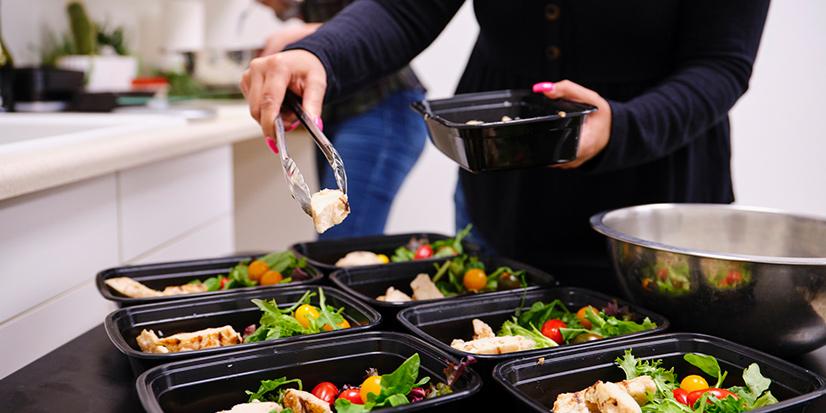Nobody is in perfect health, and that means everyone can benefit from making improvements to their wellness routine. Our physical well-being impacts almost every other area of our life: our mood, our productivity, and our relationships, to name a few. Whatever is most important to you—enjoying time with your grandchildren, staying active in your favorite sport, alleviating pain in your joints—taking action on the following ideas will likely help you achieve your most important goal.
Don’t Starve.
Including plenty of fiber-containing foods and water with each meal and snack will help you feel full naturally, rather than filling up on processed, calorie-heavy foods. To give your body the highest quality, slow-burning fuel, choose a variety of whole grains, fruits, and vegetables, and try to include healthy sources of protein like nuts, beans, low-fat dairy, and lean meats.
Don’t Stuff.
Listen to your body; it will tell you when it’s had enough. Before you eat more, ask yourself: am I actually hungry, or am I thirsty/tired/stressed/bored/sad? A great way to prevent yourself from overeating is to take a short walk. Even five minutes may help you feel refreshed and snap out of eating mode.
Hydrate.
Drink water with your meals to prevent overeating and throughout the day to prevent energy-sucking dehydration. Caffeine (coffee, cola, energy drinks, and black tea) and sugar-sweetened drinks increase the amount of water you eliminate, so don’t count these drinks as part of your daily hydration, and try to stick to one or two per day.
Treat Treats as Treats.
Restricting your favorite foods leads to stress, and that stress may manifest through binge eating or feelings of guilt/sadness. Give yourself permission, and try to eat a light meal when planning for dessert afterward. You needn’t commit to an entire serving of dessert; listen to your body after each savored bite.
Sleep Well.
Sleep deprivation hard-wires your brain to crave high-calorie foods, or at least that’s what you think it’s telling you. What it really needs is more sleep. If you get up to an alarm and need several caffeinated beverages every day to keep you awake, you are not getting enough sleep. As it gets closer to bedtime, reduce the amount of light in your house and turn off electronic devices. Reading (not on your tablet) is a great pre-bedtime activity.

Move Around.
Exercise does not have to be planned, and it does not have to make you sweat. Taking a quick walk to break up the hours of sitting at work will increase your energy, suppress your hunger, brighten your mood and increase your productivity. Take the stairs, park at the far end of the parking lot, and when you feel exhausted at your desk, stand up and walk around.
Cook Together, Eat Together.
Buying and preparing foods at home means you are in control of what and how much you eat. Numerous studies have demonstrated the benefits of eating family meals. Try to increase the number of meals you eat as a family by one this week. Ask your kids or significant other to help with the preparation; that way, you’ll get to spend some time together doing something that’s good for your health. Also, kids are more likely to eat unfamiliar (read: healthy) foods if they play a role in preparing them. And if your meal doesn’t quite come out right, don’t worry! Appreciate the process of cooking for what it is: a step toward better health.
Keep in mind these seven simple steps to a healthier, happier you:
Learn how our team of registered dietitians can help you live a healthier lifestyle.







